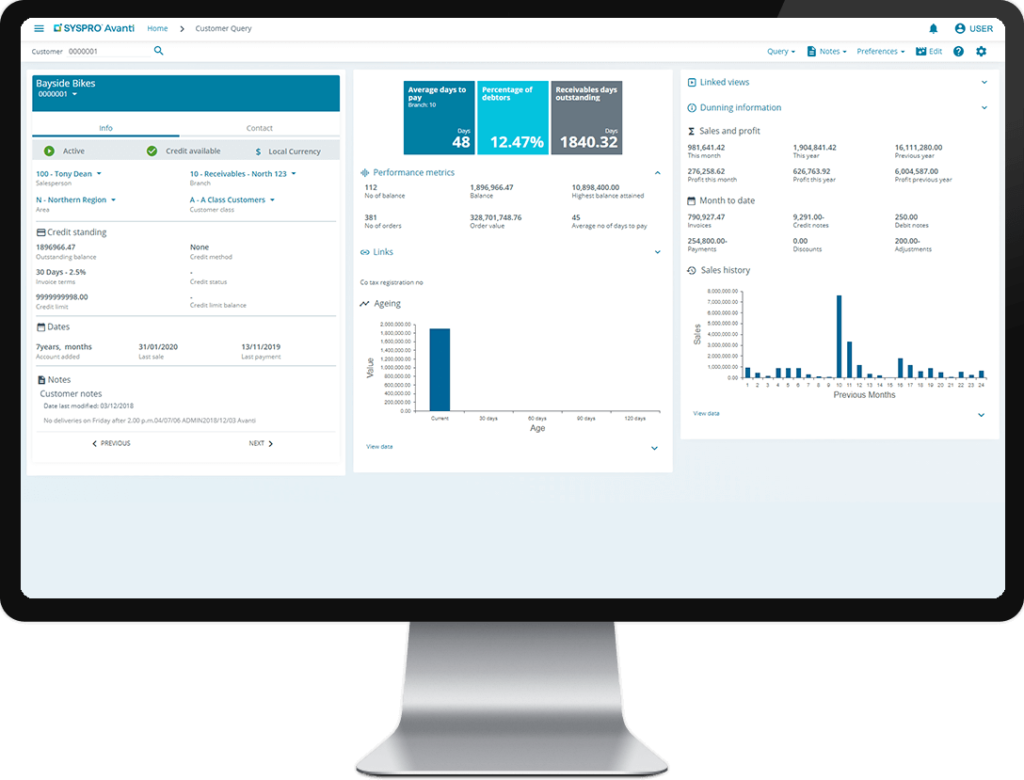Food and beverage manufacturers and distributors are being buffeted by many forces at the moment, both internal and external. While raw ingredient costs are rising because of global supply chain disruptions and the ongoing Covid pandemic, inflationary pressures in the broader economy are impacting consumer behavior.
So how are successful companies meeting these challenges and business threats? Here are 10 ways your food and beverage enterprise can rise to the challenge.
1. Keep a Finger on the Pulse of Market Trends
Start with the macro view. Consumer tastes are changing. One of the key things manufacturers can do to ensure they don’t get left behind is to be on top of market trends.
Consumer demands and tastes change quickly and manufacturers need to be able to recognize when a trend is here to stay and not be just a passing fad.

Companies need to be able to pivot quickly to meet that demand. This is where a It’s also important to balance risk and reward so food and beverage companies don’t spend time and money developing new or updated products only to find it was just a phase. Does the name “New Coke” ring a bell for anybody?
2. Reduce Waste
One big area that can be addressed with food and beverage manufacturers is waste creation. Initiatives to identify and eliminate it can have a significant impact on costs and profits.
Whether it’s something as basic as water usage or overprocessing of products, businesses should be looking at every stage of production for opportunities to improve.
For food and beverage manufacturers, an effective lot control system is mandatory. It’s important to implement FEFO (First Expiration First Out) policies, ideally tracked electronically to make sure the proper ingredients are pulled at the right time.
The need to reduce waste as costs have escalated, has led to many innovative products and services coming to market for manufacturers; Food Engineering magazine talks about the benefits of a ‘pigging’ system for example, which recovers residual liquid from pipelines prior to changing them over to another product.
The process is a completely safe and saleable product that would otherwise go to waste. It’s estimated that a soft drink manufacturer who implemented a system like this was able to save as much as $32,500 of product each day.
Likewise, employing water reuse and conservation technologies can future-proof an operation faced with future threats of drought and increased conservation policies.
3. Improve Quality
It’s been reported that lax quality and safety standards at the Abbott baby food manufacturing plant contributed to contaminated products making its way into the finished product, leading to infant illness and death.
Besides the terrible loss of life, the plant closure will mean Abbott will lose millions of dollars in lost revenue and profits.
While Quality can often be an afterthought in food and beverage processing, its value is perhaps not appreciated until something costly occurs.
The cost to put something right after it’s reached the consumer is significantly higher than fixing it at source, not to mention the potential reputational damage that can occur through word-of-mouth and social media.
Manufacturers must have a superior food safety program with ongoing training for employees, regular audits and risk management plans. Improved sustainability and transparency in product labeling will also attract more consumers.

4. Discard Unprofitable or Low Margin SKUs
Sometimes the best business decision is to lose something. When demand is high and production capacity is limited, it could be worthwhile for food and beverage companies to take a hard look at those product lines that take up manufacturing and distribution resources but offer marginal returns. Look for better uses for new and more profitable products.
5. Space Optimization
In a period of accelerated food and beverage sales, some manufacturers will realize that production capacity is limited in relation to the volume of orders coming which could result in either turning work away or delaying order fulfillment.
Real-time visibility and proactive management of line layout and production can assist in removing constraints and improving productivity to increase yield and fulfill incremental consumer demand.
Demand planning and materials resource planning (MRP) systems can benefit businesses looking to improve processing capacity, uncovering significant opportunities to put equipment to better use and allow companies to grow.
6. Preventative Maintenance
Does your business have a preventative maintenance strategy to protect against unscheduled downtimes?
Smart leaders have a regular maintenance program and keep key parts on-hand to get machines up and running faster if and when they become damaged or fail.
There are a number of smart technology options now available to manufacturers looking to streamline operations – Internet of Things (IoT) sensors can be utilized for real-time insight into equipment performance or the automatic identification of air pressure and temperature changes.
Embracing smart technologies ultimately enhances a food and beverage manufacturers’ bottom line with consistent processing, quality control and regulatory compliance.
7. Regular Employee Training
Proper training and food handling protocols are not only legally required, they’re vital to preventing food and beverage contamination.
Providing ongoing training and review for both new and existing employees is vital to improving cost-of-goods sold.
Disorganized manufacturing environments and ‘clutter’ reduces productivity and opens the door to contamination.
Ensuring employees understand rules and regulations around both production and shop maintenance will improve the bottom line.
8. Inventory Tracking and Management
Now more than ever, it’s vital for food and beverage manufacturers to accurately predict inventory requirements.
Supply chain complications rule the day right now and companies are placing bigger orders earlier than ever to account for shipping delays. It’s a delicate balance.

Too much inventory carry and money that could be used elsewhere sits on shelves. Too little inventory results in shipping delays, lost orders and unhappy customers.
A strong inventory system can provide real-time feedback allowing companies to make accurate business decisions
9. Effective Forecasting
To be successful in today’s environment manufacturers need to accurately track sales data to understand customer demand. We work daily to help our clients understand future demand and seasonality to avoid holding costly, excessive inventory and unnecessarily over-producing products.
Unfortunately many food and beverage companies still rely on spreadsheets that are prone to human error and become outdated the moment information is downloaded, making it difficult to accurately determine future demands.
10. Supply Chain Management
Supply chain management has certainly become harder because of Covid. Long-term issues like climate change and the war in Ukraine add even more complexity into today’s supply chain.
Forward thinking companies are game-planning multiple scenarios to better manage supply chains.
Plans include signing long-term premier partner agreements, expanding supplier relationships to multiple companies and using advanced software such as Artificial Intelligence to analyze performance data to more accurately predict supplier performance and trends.
For food and beverage manufacturers, they also may have been forced to look closer to home for raw materials and supplies in order to provide resilience in obtaining the raw materials they need.
While supply chain management will look different for every business, gaining better visibility of the entire supply chain and being able to control it through software can alleviate some of the uncertainties and provide companies a better chance to get closer to customers.
_________
Technologies International, Inc. has been working with food and beverage manufacturers for 25 years to help companies reduce risk, improve business performance and protect profits. We can be reached at (909)-614-1416 ext. 120 or on the web at https://tech-intl.com
Let’s talk about how you can take your food and beverage manufacturing company to the next level.


